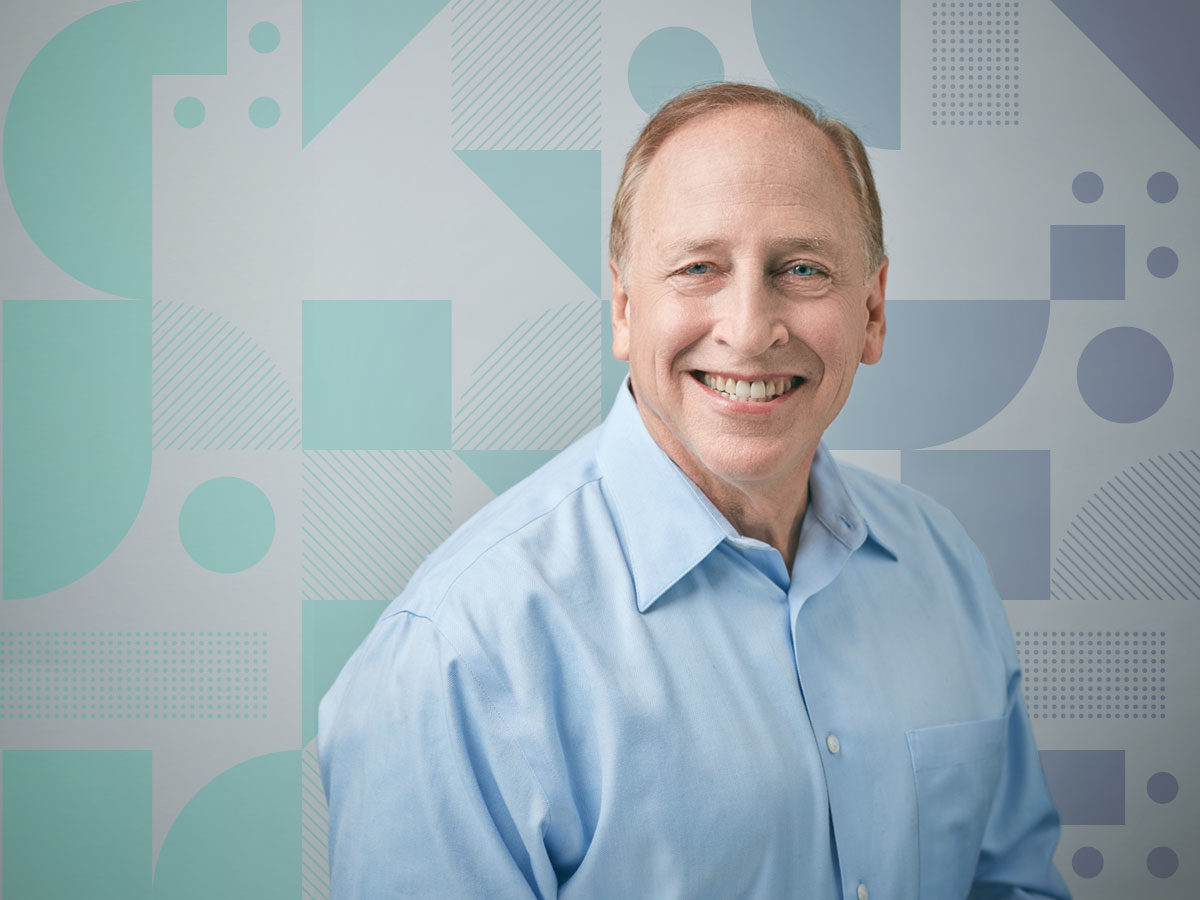

LRW recently celebrated the 25th anniversary of one of our leaders, DJ Jefferson, Executive Vice President of so what?® One of the most important figures in the company’s history, DJ has been LRW’s chief methodologist, the primary architect of our industry-leading marketing science team, and one of the strongest proponents of LRW’s so what?, action-oriented research. We sat down to talk to DJ to get his perspective on the role of the researcher from past to present and as well as his outlook for the future.
_________________________________
You’ve just celebrated your 25th Anniversary. What are you going to do next?
Why, of course, I’m going to Disneyland!
When you joined LRW, did you think you would be here for a quarter of a century?
I wasn’t sure I’d be here for a year. When I first was considering LRW, I was feeling a little stale. In my preceding three jobs, I had been client-side at companies for five years, then four years, then three… data analyst that I am, I detected a trend. So I decided to shake it up a little bit, and it seemed like the supplier world would be just different enough to create some additional interest for me, while not taking me too far afield. I gave it a year and figured if it didn’t work out I could at least get away from another Chicago winter.
You have a non-traditional title, Executive Vice President of “so what?” What exactly is your role at LRW?
Well, the answer is something I say a lot around here…it depends. My role is to do whatever it takes to ensure our projects lead to action. If you walk the halls at LRW, you can see the words “so what?” on the walls and you’ll hear it in our conversations. While many research companies focus on study execution, that’s just a piece of it at LRW. For us, success is achieved when the study leads to real action for our clients, the implementation of marketing strategies and tactics; if it’s left on the shelf, we have failed.
Having made the leap from client to agency, how do you distinguish the role of a client-side researcher from a supplier-side researcher?
The role of the researcher is the same regardless. It’s all about using research to drive the business forward. In each of my client side jobs, my role was to understand the products I was trying to sell and to figure out the best approach to answer questions that would help the company make decisions. Success was measured by whether or not our thinking was in the marketing plans. As a supplier, you’re often one or two steps removed from working with the product and brand managers, but your goal should still be to drive business decision-making.
So how can a market research agency partner have business impact despite several degrees of separation?
The research firm must act like a consultant. You are in there with the client, understanding their business, helping them frame up questions, and gathering data that’s going to be appropriate for their issues. I don’t know what more you could want from a supplier than a partner who has a level of expertise in marketing, marketing research, business strategy, and analytic methods. A partner who can help you figure out the best and most efficient way to get at what is needed to inform the business decision.
Do all clients want that type of partnership?
Of course not. The role we play will always be a function of what the client wants. If all they want is a project done well, we can do that; execute it well, on time and on budget. In fact, we’ve received many accolades from the industry in terms of the quality of our execution. However, it just seems like we are more effective with clients who want what we’re best at–being a partner who can help them think through how to best inform their business issues.
A big part of our ability to deliver “so what?®” has come from the building of LRW’s industry-leading marketing science capability. How has the role of marketing science changed what researchers have done in the last quarter century?
We are now better equipped to understand human behavior and attitudes which allows us to address more business issues in more sophisticated ways. Part and parcel of that has been an increasing recognition of what people cannot overtly tell you. As a result of that, there has been consistent growth in the amount of development and use of techniques that get you beyond the respondent’s stated reasoning. I’ll point to three examples of this trend. First is the increased emphasis in qualitative research of ethnographies and shop-alongs, where there’s a heck of a lot more emphasis on “show me” rather than “tell me.” Second is the growing reliance on trade-off analysis: the purpose of which is to see and deduce people’s decision process, rather than having them try to understand themselves and explain it. Third is the development of tools geared to understanding consumers’ emotional responses and non-conscious associations and how these affect consumer choice.
How has the company culture changed as you’ve been at LRW?
While some of the specifics have changed, the essence of the company has remained the same.
Striving for “so what?” has been in the DNA here since I arrived even if it wasn’t named yet. Then it was about helping the client make more money. Now it’s about helping the client make better business decisions. The mandate is the same; only the words have changed.
And while you have a very different company when you’re fifteen people than you do when you’re three hundred, we have always had a “do whatever it takes to get it done” attitude. We’re totally focused on delivering for our clients.
The demand for analysts, consultants, and researchers is growing. What would be your advice for an up-and-comer?
The key is to frame the problem: then you can figure out what the best way is to address it. It starts out with understanding business decision-making and understanding what sorts of levers the business can use to develop, promote, and perfect their product or service. That’s the foundational element. It’s absolutely critical. Once you’ve got that, then you can start factoring how different data sources and analyses can address the issues.
So what’s up for your next 25 years at LRW?
Death, but I do have some interim goals prior to that.
You must be logged in to post a comment.
DJ, thanks for all your wisdom…today and through the years!
It is an understatement to say that it’s both a privilege and a pleasure to be a colleague of DJ’s.
Thank you, DJ, for always inspiring us to do our best — and what’s best for our clients. You set the standard.
Congratulations, DJ!
It is only appropriate that this interview with you include the phrase, “it depends” 🙂
As I’ve said before: When I first joined LRW, I began to look for mentors that I could informally use to learn from and pattern myself on. DJ was the first face I chiseled into my “Mount Rushmore” of market research. His wisdom, tenants, style, (and incredible success to height ratio) are a guiding force for me on a daily basis in my work… indeed for all of us at LRW. Our time throughout the years collaborating and debating methods has burgeoned my skills more than he can know.
DJ, I have always had a lot of respect for your unbelievable smarts, pun-intended jokes, your open-door policy for absolutely anyone at any level, and your ability to make everyone in the room feel like a valuable contributor (no matter how silly the comment/question may be.) I truly appreciate all of the above.
Congratulations on the many years, may there be many more!
I’m relatively new to LRW, and have myself spent some 25 years in marketing research, with a continuous focus on marketing sciences. As such, I think I have a particularly good vantage point from which to see and appreciate the advanced research design and analytics capabilities which DJ has played such a pivotal role in building at LRW. Many firms use the term “industry leading” all too loosely, but that definitely cannot be said about LRW. After all, it’s actually our clients who’ve bestowed that status on LRW through their third party survey responses. My hat’s off to you DJ.
DJ, Came across this and thought I’d try to catch up with you after all these years